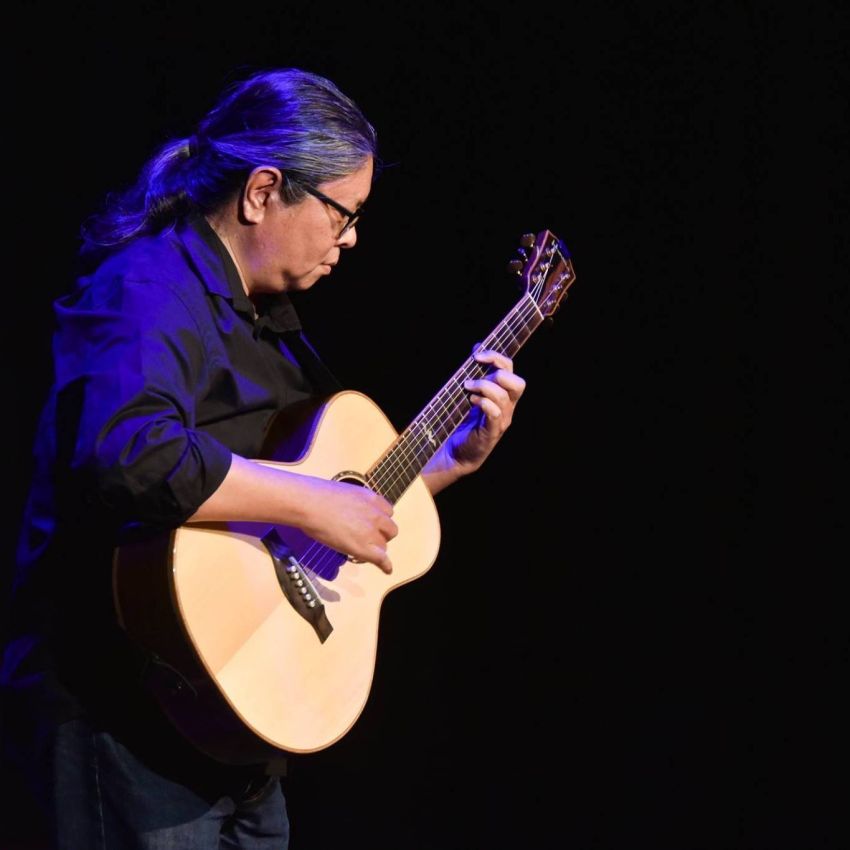
Christian “Bong” Ramilo is a Filipino-Australian musician and community arts worker based in Darwin. In 2018, he received the Australia Council Ros Bower award for his outstanding contribution to the community arts and cultural development.
I spoke to Bong recently about the impacts of the COVID-19 pandemic on artists in the Northern Territory.
Bong told me that the COVID-19 pandemic has had some negative impact on the community arts sector, as their activities largely depend on public gatherings and workshopping in enclosed spaces.
“At Darwin Community Arts, we started working from home by mid-March [2020]”, said Bong. “We stopped all our public gatherings two weeks before the general lockdown started across Australia. We work with vulnerable groups of people and believed that they might be more susceptible to infections.”
As a result, Bong started exploring digital forms of communication for work. “We had workshops, meetings and even exhibition openings on Zoom. Earlier on, we experienced quite a few problems and experienced Zoom fatigue.
“Because of these problems, Darwin Community Arts decided to develop an approach which combined online and offline forms of communication throughout the lockdown.”
While working from home brought some challenges, Bong says that it also made him feel closer to the art scene in the Philippines: “Since the beginning of the pandemic, I have been more in touch with my colleagues in the Philippines than I have ever been before”, he said.
Bong took this opportunity to collaborate over the internet with musicians in the Philippines: “We performed a few songs where we recorded ourselves playing our parts separately. Then, we assembled these videos together. I didn’t know how to do it before the pandemic and learning it was a positive experience.”
Because access to the studios was cut off during the pandemic, it taught artists how to improvise: “There was no such a thing as a ‘studio’ during the pandemic”, Bong said. “My studio was my kitchen and the most important equipment I had was my phone.”
Staying at home also helped him to become more focused on his art: “I managed to write four songs over the last 12 months. This is a good measure for me since I would normally write one or two.”
As a community arts worker, Bong has been part of many discussions regarding the ways the pandemic has affected the livelihoods of those working in the arts industry, such as people losing their jobs and venues shutting down.
“Those stories are all true”, said Bong. “But since I started working within the community arts sector, I have also noticed that not everyone who creates art is employed within the industry.
“Especially in a community setting, people who dance, sing or make art don’t particularly do it because it is their occupation and they get paid for it, but they do it as a part of cultural maintenance.”
The arts industry has always had problems regarding funding, even before the pandemic hit, Bong told me. “Unfortunately, there was a great reduction in the number of such community activities during the pandemic, due to the restrictions on the number of people who could gather.”
Recently, the federal government has announced a new rescue package for the arts and entertainment industry. While Bong welcomes such funding, he believes that the government should adopt more sustainable, long-term alternatives, such as providing people with a living wage.
“This idea was demonstrated by the measures the government took during the pandemic. JobKeeper and JobSeeker payments allowed a lot of people to keep going despite losing their jobs.
“I believe that having all the basic necessities would help those who want to make art to focus on making art, instead of worrying about having a roof over their heads.”
[This interview was conducted as part of a Diversity Arts project.]